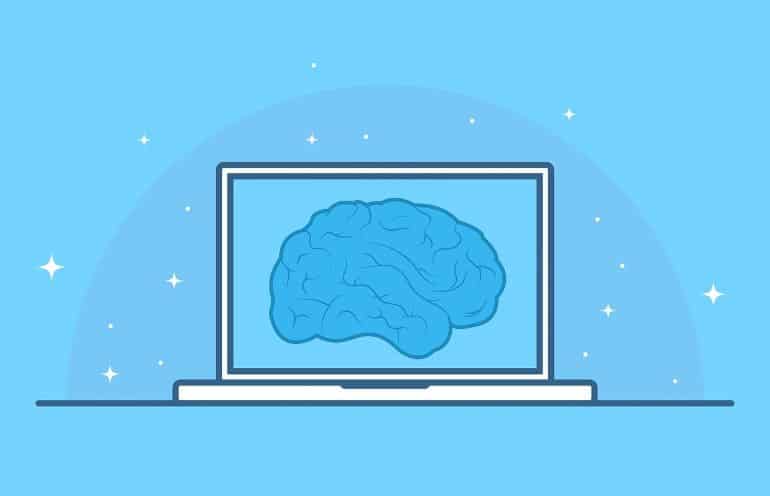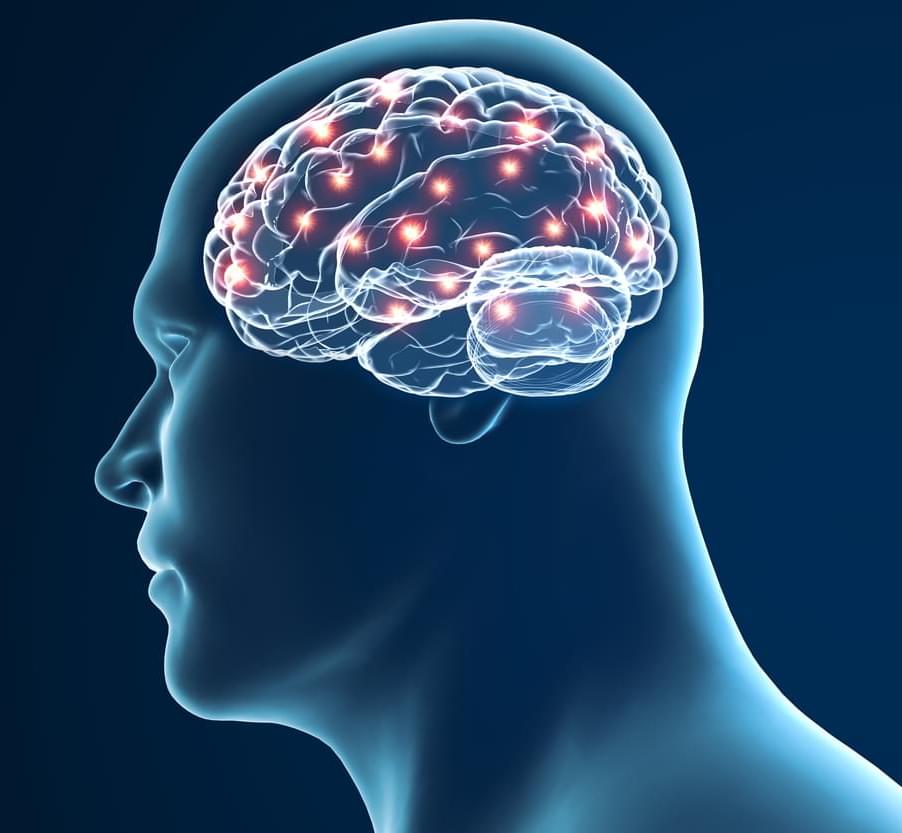Are there any limits to large neural networks?
OpenAI will release GPT-4 in the next few years. It will have around 100 trillion parameters.
Are there any limits to large neural networks?
OpenAI will release GPT-4 in the next few years. It will have around 100 trillion parameters.

Our reign as sole understanders of the cosmos is rapidly coming to an end. We should not be afraid of this. The revolution that has just begun may be understood as a continuation of the process whereby the Earth nurtures the understanders, the beings that will lead the cosmos to self-knowledge. What is revolutionary about this moment is that the understanders of the future will not be humans but cyborgs that will have designed and built themselves from the artificial intelligence systems we have already constructed. These will soon become thousands then millions of times more intelligent than us.

“The dream of predicting a protein shape just from its gene sequence is now a reality,” said Paul Adams, Associate Laboratory Director for Biosciences at Berkeley Lab. For Adams and other structural biologists who study proteins, predicting their shape offers a key to understanding their function and accelerating treatments for diseases like cancer and COVID-19.
The current approaches to accurately mapping that shape, however, usually rely on complex experiments at synchrotrons. But even these sophisticated processes have their limitations—the data and quality aren’t always sufficient to understand a protein at an atomic level. By applying powerful machine learning methods to the large library of protein structures it is now possible to predict a protein’s shape from its gene sequence.
Researchers in Berkeley Lab’s Molecular Biophysics & Integrated Bioimaging Division joined an international effort led by the University of Washington to produce a computer software tool called RoseTTAFold. The algorithm simultaneously takes into account patterns, distances, and coordinates of amino acids. As these data inputs flow in, the tool assesses relationships within and between structures, eventually helping to build a very detailed picture of a protein’s shape.

Summary: Machine learning algorithm produced fewer decision-making errors than professionals when it came to clinical diagnosis of patients.
Source: University of Montreal.
It’s an old adage: there’s no harm in getting a second opinion. But what if that second opinion could be generated by a computer, using artificial intelligence? Would it come up with better treatment recommendations than your professional proposes?


Check out our second promo for #transvision #future Summit 2021 (#madrid Oct. 8 — 12), featuring the optional dinner/cocktails we are scheduling, and 2 full-day #tours of several #unescoworldheritage sites and historical places near Madrid: Segovia, Ávila, Monsaterio de El Escorial & Valley of the Fallen on Oct. 11 and Alcalá de Henares, Aranjuez & Toledo on Oct. 12. It’s going to be espectacular! You don’t wanna miss those, so get your tickets now! 😊 Get your tickets here -> www.TransVisionMadrid.com.
The event itself will be a lot of fun, so make sure to register to come to Madrid in person, or to watch it via streaming (at a reduced price). There will be talks about #longevity #artificialintelligence #cryonics and much much more.
Promo by Sergio Tarrero for Alianza Futurista as Diamond Sponsor of TransVision Future Summit 2021. Alianza Futurista will also provide live video production, streaming and post production services for this event.
Humanity Plus Humanity Plus Magazine Ilustre Colegio Oficial de Médicos de Madrid (ICOMEM) Alcor Life Extension Foundation Cryonics Institute Cryonics Institute Posthuman Network Posthuman Network Cryonics4U Longevity Conferences Longevity for All International Longevity Alliance U.S. Transhumanist Party Transhumanist Party Australia Transhumanist Party Australia Group Transhumanist UK Rational Transhumanism Singularity University Ray Kurzweil Ray Kurzweil Singularity Ray Kurzweil Singularity Ray Kurzweil’s Singularity Singularity Hub Singularity Network Transhumanismo Brasil SingularityNET Singularitarianism Foresight Institute Lifeboat Foundation Machine Intelligence Research Institute KrioRus The Hedonistic Imperative — Paradise Engineering Future of Life Institute Future of Humanity Institute (Oxford University) The Long Now Foundation Global Catastrophic Risk Institute CLUB DE SEGUIDORES DE JOSÉ LUIS CORDEIRO (OFICIAL) Aubrey de Grey Dr. Aubrey de Grey HashtagTeam 🤩

A new type of artificial intelligence (AI) algorithm, developed by the Mayo Clinic and the Google Research Brain Team, can potentially pave the way toward more directed brain stimulation for the treatment of Parkinson’s disease and other movement-related disorders.
According to researchers, this algorithm can more accurately determine the interaction between different regions of the brain — data that will be key for improving the way brain stimulation devices are used in the real world for treating Parkinson’s.
“Our findings show that this new type of algorithm may help us understand which brain regions directly interact with one another, which in turn may help guide placement of electrodes for stimulating devices to treat network brain diseases,” Kai Miller, MD, PhD, a neurosurgeon at Mayo Clinic and the first author of the study, said in a press release.
Discover what makes Henson so great: https://bit.ly/3Dn1so3
Why the Tesla bot is the key to a Mars colony, and why Elon Musk’s SpaceX mission to build a colony on Mars needs the Tesla bot.
Last video: NEW Tesla Model 3 Now Available!
► Subscribe to our sister channel, The Space Race: https://www.youtube.com/channel/UCeMcDx6-rOq_RlKSPehk2tQ
► Subscribe to The Tesla Space newsletter: https://www.theteslaspace.com.
► Get up to $250 in Digital Currency With BlockFi: https://blockfi.com/theteslaspace.
►You can use my referral link to get 1,500 free Supercharger km on a new Tesla:
https://ts.la/trevor61038
Subscribe: https://www.youtube.com/channel/UCJjAIBWeY022ZNj_Cp_6wAw?sub_confirmation=1
🚘 Tesla Videos: https://www.youtube.com/watch?v=L9soIzuucBk&list=PL_4hhCaBkh…VvYNWbfQiq.
🚀 SpaceX Videos: https://www.youtube.com/playlist?list=PL_4hhCaBkhkJAOfZsqUnK…=1&index=1
👽 Elon Musk Videos: https://www.youtube.com/watch?v=iowsm7leEKo&list=PL_4hhCaBkh…DhtjC26hKN
Now DeepMind has set its sights on another grand challenge: bridging the worlds of deep learning and classical computer science to enable deep learning to do everything. If successful, this approach could revolutionize AI and software as we know them.
Petar Veličković is a senior research scientist at DeepMind. His entry into computer science came through algorithmic reasoning and algorithmic thinking using classical algorithms. Since he started doing deep learning research, he has wanted to reconcile deep learning with the classical algorithms that initially got him excited about computer science.
Meanwhile, Charles Blundell is a research lead at DeepMind who is interested in getting neural networks to make much better use of the huge quantities of data they’re exposed to. Examples include getting a network to tell us what it doesn’t know, to learn much more quickly, or to exceed expectations.